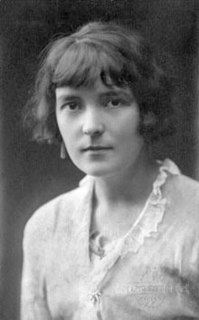A Quote by Teresa of Avila
It is of great importance, when we begin to practise prayer, not to let ourselves be frightened by our own thoughts.
Quote Topics
Related Quotes
If we understood the power of our thoughts, we would guard them more closely. If we understood the awesome power of our words, we would prefer silence to almost anything negative. In our thoughts and words we create our own weaknesses and our own strengths. Our limitations and joys begin in our hearts. We can always replace negative with positive.
Christ choosing solitude for private prayer, doth not only hint to us the danger of distraction and deviation of thoughts in prayer, but how necessary it is for us to choose the most convenient places we can for private prayer. Our own fickleness and Satan's restlessness call upon us to get into such places where we may freely pour out our soul into the bosom of God [Mark 1.35].
If you don't pray often, you won't gain a love for praying. Prayer is work, and therefore it is not very appealing to our natural sensibilities. But the simple rule for prayer is this: Begin praying and your taste for prayer will increase. The more you pray, the more you will acquire the desire for prayer, the energy for prayer, and the sense of purpose in prayer.
In memorizing the prayer, it may be helpful to remind yourself that you are not addressing some extraterrestrial being outside you. The kingdom of heaven is within us, and the Lord is enshrined in the depths of our own consciousness. In this prayer we are calling deep into ourselves, appealing to the spark of the divine that is our real nature.
When we cultivate mystical awareness or transcendent identity--which is a natural outgrowth of meditation and other practices--what happens is that we begin to take a witness position on our own lives, and that includes our minds. We break the illusion that we think our own thoughts, which is not always the case. Some ideas just arrive in our heads.
Though our brother is upon the rack, as long as we ourselves are at ease, our senses will never inform us of what he suffers. They never did and never can carry us beyond our own persons, and it is by the imagination only that we form any conception of what are his sensations...His agonies, when they are thus brought home to ourselves, when we have this adopted and made them our own, begin at last to affect us, and we then tremble and shudder at the thought of what he feels.











































